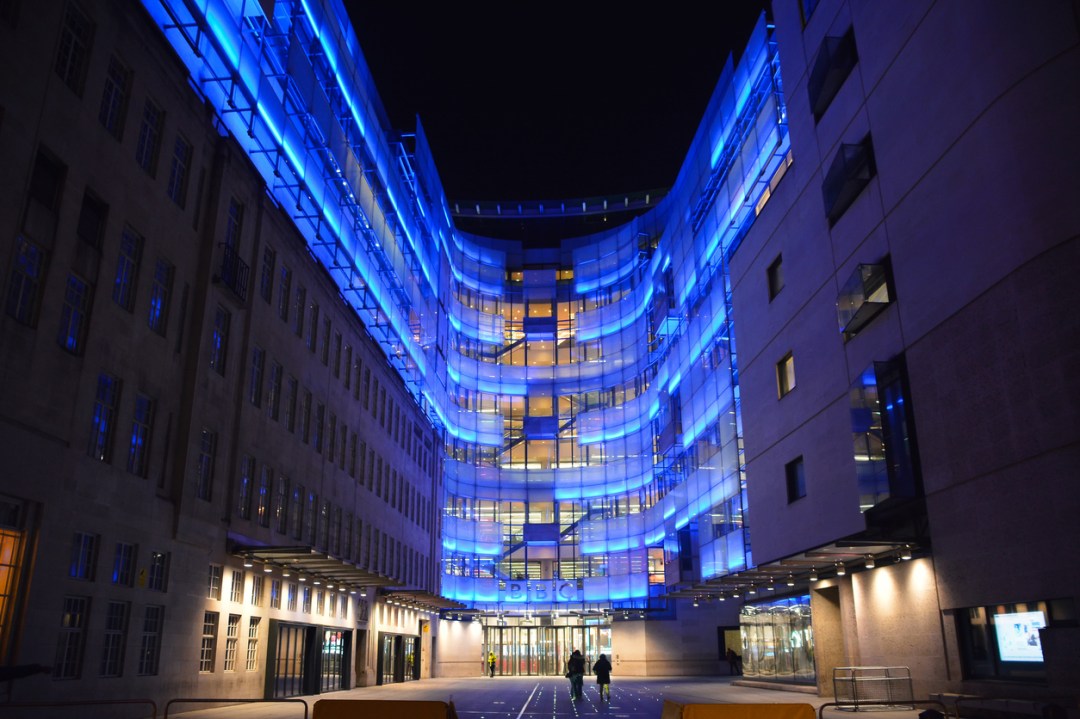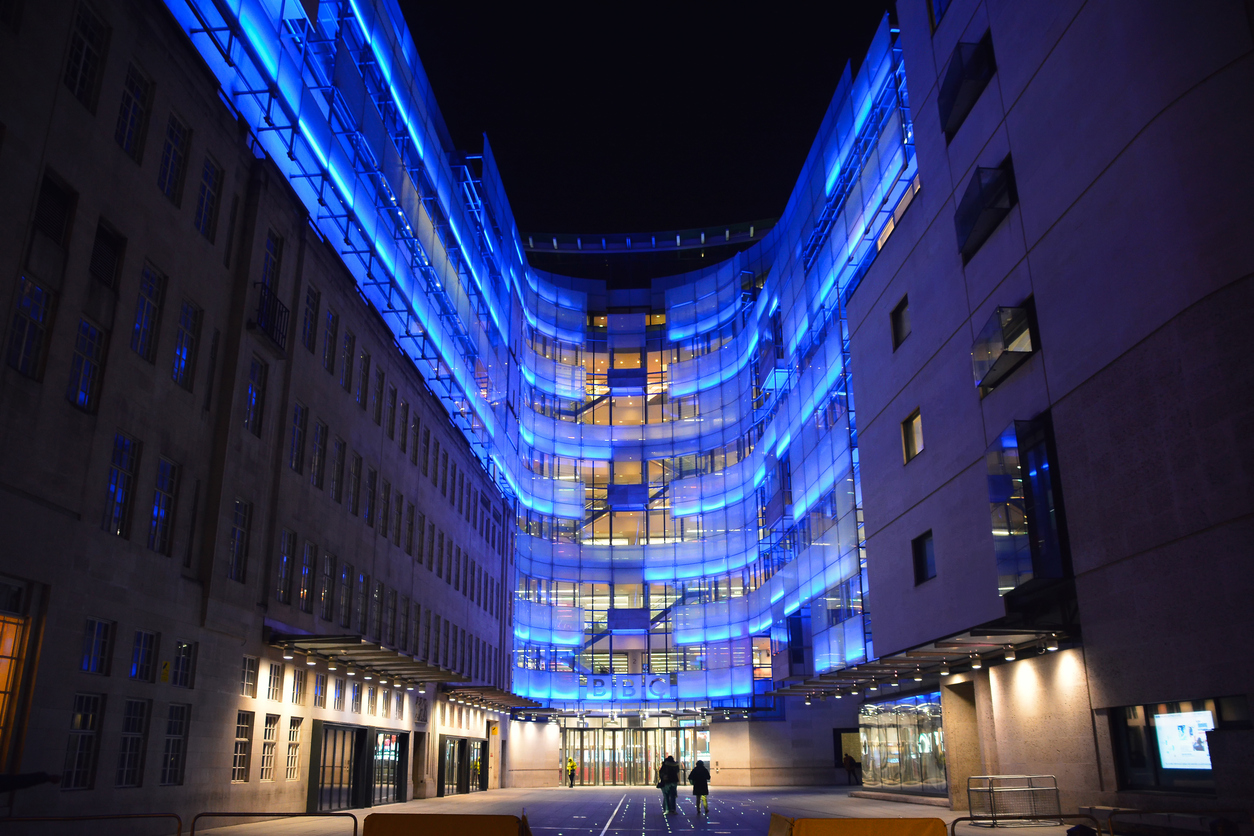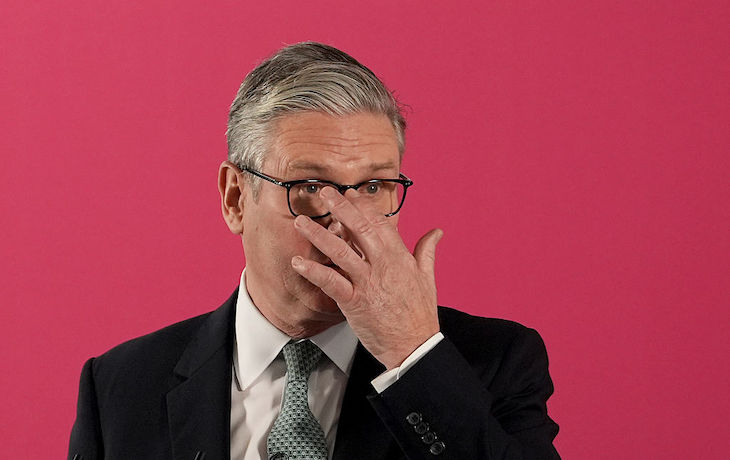August 29,1989 is a date that is burned into my memory. It’s the date that I first walked up Regents Street from Oxford Circus tube station and into the ornate lobby of Broadcasting House to begin my career at the BBC. That was the day, as a 23-year-old news trainee, that I began to learn the importance of accuracy, impartiality and fairness in reporting – the values that were instilled in me as a journalist and BBC staffer. To this day, they’re the values that continue to underpin the work of thousands of dedicated producers and reporters at the corporation.
The tunnel vision that has led some BBC shows and journalists down the wrong track on the Middle East and trans issues reminds me of our past reporting on immigration
Alongside those values something else developed as well: an esprit de corps. As my colleagues and I put programmes together, having to meet near-impossible deadlines day after day, reacting quickly to breaking news, coping with technical failures, covering gruesome crimes, terror attacks and human tragedies, a bond formed and a shield went up. Although we moaned endlessly among ourselves about BBC managers, bureaucracy and inefficiencies, we became protective of the institution when outsiders criticised it.
There is nothing wrong with being proud of the organisation you work for – and there is everything right about working closely together as a team. But the danger is that it breeds a kind of ‘groupthink’ in which alternative or unfashionable views are marginalised, and where external complaints about your output are dismissed. I was sometimes guilty of it myself during 31 years at the BBC and I believe it’s at the root of the scandal that has now cost Tim Davie, the Director-General, and Deborah Turness, the CEO of News, their jobs.
Indeed, the tunnel vision that has led some BBC shows and journalists down the wrong track on the Middle East and trans issues reminds me of our past reporting on immigration. From about 2004, when the expansion of the EU sparked an influx of migrants to the UK, to the Brexit referendum in 2016, BBC News failed properly to reflect concerns about the impact of mass migration, in particular, the way it was changing the nature of many of our towns and cities.
During that period, I remember speaking to the campaign group Migration Watch which felt it was excluded from our coverage even though its analysis of immigration trends had been spot on and ahead of the curve. There was no defined conspiracy to keep Migration Watch off the airwaves, but I detected an unease about their motives among BBC staff when I suggested that we cover their findings more prominently. No such concerns were ever expressed about the Institute for Public Policy Research, which at the time was the main body providing a counter view to Migration Watch’s. It was a clear example of liberal ‘group think’, which was later highlighted in a review of the BBC’s immigration coverage. The report’s author, Stuart Prebble, said: ‘A large group of people working together are in danger of becoming more homogenous in their thinking, not less, and so less able to see when the output reflects a narrow outlook.’
The misleading edit of Donald Trump’s speech, which was broadcast on the Panorama programme in October 2024, is a case in point. How can it have taken the BBC 13 months to issue an apology for such a blatant breach of editorial standards? This was not a marginal call. And it was not a mistake on a ‘live’ show, late at night, which would have been more understandable. It was on the corporation’s flagship current affairs programme – and it related to comments from the most powerful man in the world. The only explanation is that BBC bosses were simply unable to see things in a way that was so clear to others less invested in what they were broadcasting.
According to the former independent external adviser on BBC editorial matters, Michael Prescott, both Turness and her deputy, Jonathan Munro, tried to defend the spliced-together Trump clip. Munro, who has now taken temporary charge of the News division after Turness’s departure, is reported to have said: ‘There was no attempt to mislead the audience about the content or nature of Mr Trump’s speech before the riot at the Capitol. It’s normal practice to edit speeches into short form clips.’
But it should never be the practice for a clip to change the meaning of the parts that have been edited, which the BBC Board eventually conceded it had: ‘We accept that the way the speech was edited did give the impression of a direct call for violent action,’ said Samir Shah, the BBC Chairman.
The extraordinary length of time it has taken for the BBC to admit the Trump mistake is symptomatic of a defensive culture that runs through the organisation. When reports that I had done for radio, TV or online were the subject of public complaints, the stance of the unit tasked with handling them always surprised me. Its initial position was to bat away the grievance without any acknowledgement that an error had been made or that an apology might be due. There were occasions when I thought it would have been simpler and more honest to say, ‘I’m sorry, I got that wrong.’
Transforming that defensive mindset and encouraging a greater diversity of approach to stories will not be achieved by the procedural changes announced by Shah, welcome though they are. They include internal reviews to check improvements have been made, changes to the composition of the BBC’s Editorial Guidelines and Standards Committee, and amendments to online stories where needed. In the News and Current Affairs department, it will require far more than that.
It needs robust leadership from an experienced journalist with a track record of fearless investigations. The new leader must be able to focus solely on the editorial side of BBC News output, setting priorities, steering key stories and monitoring coverage every day, with another senior manager responsible for budgets, staffing and structures. This is a make-or-break moment for the organisation that gave me a chance over three decades ago – to restore its reputation and win back public trust.








Comments